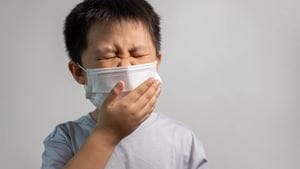
The name of the Tetanus, Diphtheria, and Pertussis vaccine may sound more like a rap song than a medication, but however you remember it, know that Tdap is something all adolescents and adults should receive.
According to St. Lawrence Health providers, children should receive a single dose of the Tdap vaccination at age 11 or 12, and adults should get a booster dose every 10 years.
Tetanus (also known as lockjaw) is probably the most commonly known disease of the three, and it enters the body through cuts or wounds, while diphtheria, and pertussis (also known as whooping cough) spread from person-to-person.
The Center for Disease Control and Prevention (CDC) explains that Tetanus (T) causes seizures, painful stiffening of the muscles, and may lead to serious health problems, including the inability to open the mouth, having trouble swallowing and breathing, or even death. Diphtheria (D) can lead to difficulty breathing, nerve damage, heart failure, paralysis, or death.
Pertussis (aP) can cause uncontrollable, violent coughing that makes it hard to breathe, eat, or drink. Pertussis can be extremely serious especially in babies and young children, causing pneumonia, convulsions, brain damage, or death. In teens and adults, it can cause weight loss, loss of bladder control, passing out, and rib fractures from severe coughing.
The most common side effects to the Tdap vaccine include pain, redness or swelling at the injection site, mild fever, headache, or feeling tired; nausea, vomiting, diarrhea, or stomachache sometimes occur.
Learn more about the Tdap vaccine by talking with your St. Lawrence Health provider, or find one. The CDC’s website is also an accurate source of information.